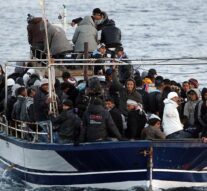
Berlusconi’s legacy for migration policy and migrants
Migration 18 June 2023Estimated time of reading: ~ 3 minutes
Silvio Berlusconi’s stance, throughout his political career, spanning from the 1990s to the early 2010s, on migration remained a subject of intense debate and scrutiny, given the policies, rhetoric, and their implications in the broader context of Italian society.
Berlusconi implemented various immigration policies that sought to address the challenges posed by the influx of migrants. In 2002, his government passed the “Bossi-Fini” law, which aimed to regulate immigration and crack down on illegal migration. The law introduced stricter criteria for family reunification, limited employment opportunities for migrants, and increased deportation powers for authorities. Berlusconi’s provocative and often controversial statements on migrants and immigration garnered significant attention, with a use of language and characterisations drawing condemnation from human rights organisations and progressive political parties.
Berlusconi’s political career was characterized by his involvement in various coalition governments, which influenced his stance on migration. In some instances, he formed alliances with right-wing parties that advocated stricter immigration policies, thereby adopting a more hardline position himself. However, it is important to note that Berlusconi’s views on these issues were not static. At times, he expressed more moderate positions and emphasized the importance of integration and respect for migrants’ rights.
These shifts highlight the complex interplay between political expediency and personal convictions within the context of coalition politics. Berlusconi’s legacy regarding migrants and immigration is a subject of ongoing discussion. Critics argue that his policies and rhetoric contributed to the rise of anti-immigrant sentiment in Italy, fostering a climate of hostility towards migrants and perpetuating divisions within society. They contend that his emphasis on security concerns overshadowed the need for comprehensive integration strategies and humanitarian approaches.
However, his influence on EU immigration policy had far-reaching consequences. The increased emphasis on border control and restrictive measures within the EU not only affected the management of migration but also posed challenges to the principles of solidarity, human rights, and international cooperation. The approach to immigration shifted from a focus on integration and humanitarian values to a more security-oriented framework, contributing to the fragmentation of EU member states’ responses to migration.
Written by: Nenad Stekić



